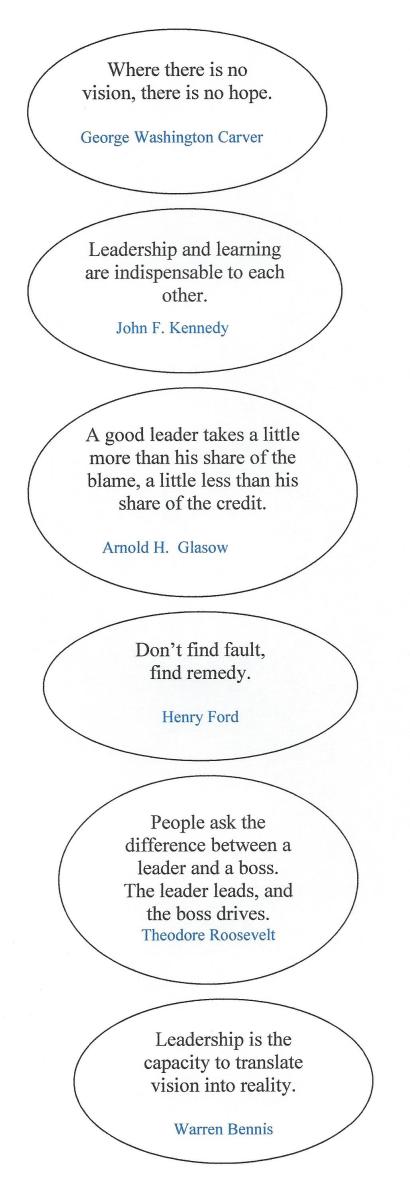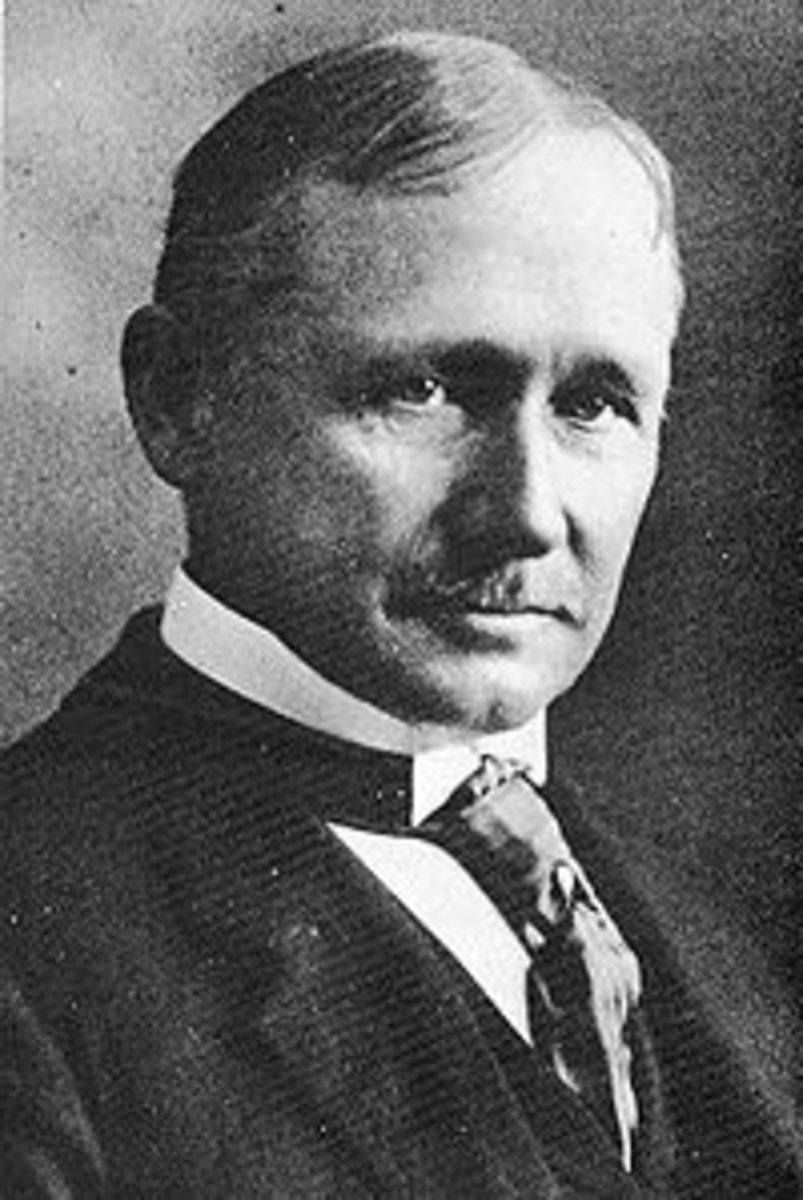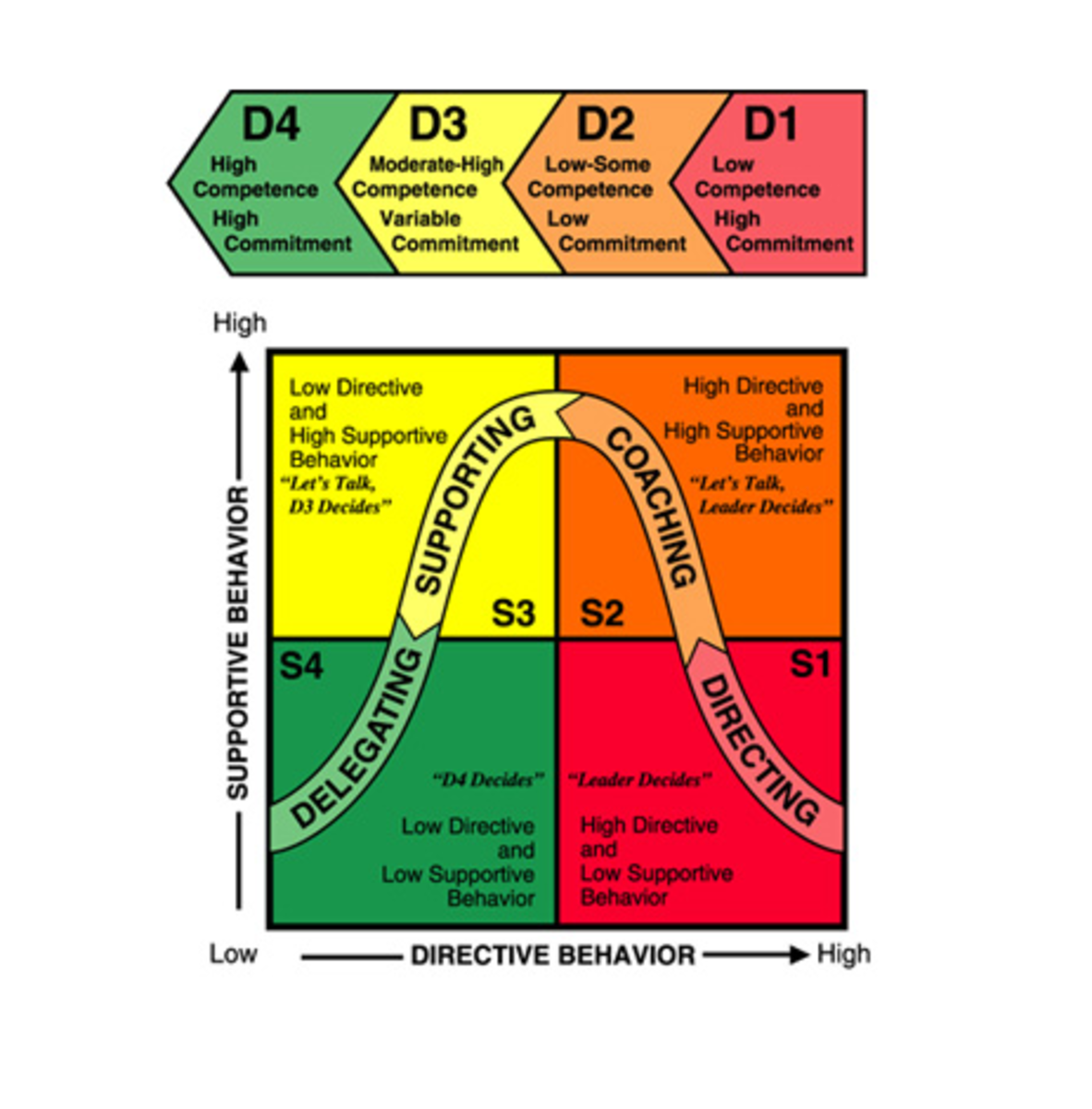Leadership Qualities - the Difference between Good Leaders and Toxic Leaders
A Leader Creates Loyal Followers
Many leaders are charismatic people who have an aura of attractiveness, a magnetism, and an heir of self assurance that announces their winning style to all those who follow them. Leaders create loyalty among the people they are leading. Most leaders have charisma which people want to be around them.
Leaders are in all walks of life from politics, to business, as sports players, spiritual leaders, managers, and also in cults. Leaders possess great skills of persuasion in order to lead others and convince them of the same vision the leader has.

Good Leaders and Toxic Leaders
People are not always aware of who they really are following.
Leaders hold a lot of power are able to accomplish things by unifying people towards a common aim. There are two types of leaders, good leaders and toxic leaders.
Good leaders do things for the benefit of the team. When they win, everyone wins. Good leaders use their abilities to build and make things happen that move a team forward.
Toxic leaders use others to serve their own needs. They will enhance themselves so they gain at the expense of others. Toxic leaders are often found running cults. They will use their charm to manipulate, abuse and undermine the purpose their followers joined them.
Followers and Their Need for Psychological Fulfillment
Leaders are seductive people. They can make themselves and their vision seem attractive to all. A toxic leader may be very charismatic, but they lack integrity, and honesty. They may be cynical, arrogant and tyrannical. Many followers of cult leaders are looking for the leaders to meet their psychological needs. Followers are attracted to the idea that these leaders can fulfill many of their psychological needs. Cult leaders know they are doing this, and play on people’s basic needs.
Many followers are looking for safety, security, orderliness in a world where they feel very much alone. The lure of joining with someone who is more powerful, smarter and stronger than they makes them feel more protected. Cult leaders promise a utopia with unrealistic visions that prey on their followers fears through grand illusions of the power and protection they will have being part of the cult.
Leaders Who Look to Serve Their Own Interests
All leaders possess the ability to have noble dreams. A good leader creates a path that can be accomplished realistically. A good leader makes themselves responsible for the end result. A toxic leader blames others if the desired results are not yielded.
The Iron Law of Oligarchy states that complex systems like political parties, unions and other large organizations inherently have a small clique of leaders whose interest is to serve themselves. This concept was first termed by Robert Michels, a German sociologist. Usually a small group of people have the responsibility to make the right choices for the organization. Michels believed those that make these decisions desire the rewards, influence, and status they gain from their leadership role. Michels believed that people have a mass psychology of a desire to be led. This desire strenghtens the dominant position of the leader. They then make decisions that inevitably protect the power they were given instead of considering the entirety of the group they were put in position to serve. Without power or consideration of the group’s needs, people develop apathy.
Social and Interpersonal Skills of Leaders
Both good leaders and toxic leaders possess superior social skills. But toxic leaders have poor use of interpersonal skills. Both types of leaders may be narcissitic personalities. A toxic leader uses intimidation and manipulation to get what they want. They use their charm to get want they want by seducing and then betraying their followers.
Toxic leaders will deny their members their self respect so that they can continue to dominate and control their followers. Toxic leaders are ego driven. They are more interested in their own gains and in doing so ruin the morale and ability of the group to achieve. Toxic leaders diminish free thinking among the group. They hurt the efficiency and effectiveness of their subordinates.

The Interconnection of Leaders and Followers
A leader gets to the top through their ability to influence others, garner their respect either through fear or through admiration. The leader and how the group behaves are interconnected.
A good leader creates productivity and builds a team of people to work together, using the strength of each of its members. A strong leader is inclusive so that everyone is a part of the group, the vision, and the results.
A good leader knows their own strengths and weaknesses. They are open to feedback and self knowledge about their own shortcomings. A leader makes necessary changes so that the bigger picture comes to fruition. They will look at what they did well and what they did not. Self assessment is important to a good leader.
Recognizing a Good Leader and Bad Leader
A good leader knows their own strengths and weaknesses. They are open to feedback and self knowledge about their own shortcomings. A leader makes necessary changes so that the bigger picture comes to fruition. They will look at what they did well and what they did not. Self assessment is important to a good leader.
Those who lead by authoritarian means, where people are told to not question the leader, to follow blindly and be submissive are bad leaders. Poor leaders use tactics of punishment and fear. They create divisions within the group.
Sometimes we do not easily recognize who is leading us. Sometimes we are fooled. But once recognized, it is important that we don’t continue to follow these type of leaders.









